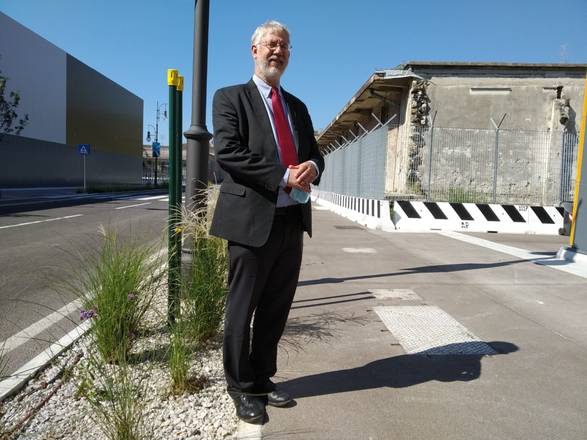Science: Matlosz, ESOF aims to develop tools for dialogue
President told ANSA on the sidelines of the opening ceremony
05 September, 15:44What was the impact of the Coronavirus crisis on the scientific community and scientific hubs? "The most significant difficulty we were facing, and we are still facing, is the question of the appropriate use of scientific expertise. When you face a crisis, and it's normal, everyone wants the best information available to make the best decisions. And here we are faced with an unknown viral disease; most of the information is uncertain. There are some differences in the scientific community's opinion concerning what is happening with this disease, how this disease is transmitted, and how the severe forms of the disease develop. And so I think there has been some frustration in the public community about the scientists not being able to provide precise information; I believe the scientific community has been frustrated because of its inability to transmit the importance of understanding uncertainty. This crisis and the knowledge that we have will help society go beyond this and progress, but there are no easy answers and immediate solutions. Therefore I think that scientists have found themselves amid expectations that were perhaps too high and inability to explain where is specific knowledge and where are the uncertainties and how these uncertainties are somehow inevitable when you are facing a new situation and how over time, these uncertainties will be removed, and we will get to more basic and reliable information.
There is a big challenge for scientists to communicate both what they know and what they do not know. And I think this is something that has not necessarily been treated as clearly as it should and left problems everywhere for the scientific community in Italy, Europe, and worldwide." There is a particular challenge to be dealt with if you think of cardinal Parolin here. He said science and faith are two dimensions that should come together as they are not so far away from each other. What do you think about this issue? "What I retained of the cardinal's remarks is the importance of human dignity and maintaining a focus on the nature of the social situation in all decisions. He tried to present an integrated approach where we see not only the factual aspects of data regarding the environmental problem, the social situation, and the human situation, but also the relationship of that with the human condition. This condition is a particular feature that goes to the heart and the soul of every one of us. Whether we are religious believers or not, our human dignity must be respected in all decisions. In a society characterized by technological progress but at the same time by inequalities and differences even in the approach to new technologies, we should always remember that there are some human considerations to be necessarily taken into account in every use of knowledge. And this is where we can come together because ESOF, working on the interface between science and society, shares with the cardinal the idea that human condition and human dignity must be respected in all these areas." Faith and science are not so far from each other, but there is indeed a big difference between those who believe that covid-19 exists and those who deny it. So how can we tackle this paradox? "I think the cardinal will not disagree if I say that there is a difference between the scientific message and the search for objective provable knowledge and faith, which is a belief in unprovable realities that go beyond science and what any other human endeavor can genuinely identify as being true or untrue.
And I think that is the difference. I believe that the cardinal's presentation was also engaging us, the scientific community, not to go further than what we can do. The scientific method is powerful, but it does not cover everything in humanity's heart and soul. So we have to make sure not to overstep what we can do, leave our fellow human beings' beliefs, and respect their hearts and souls, their human dignity as such.
And this has nothing to do with denying the existence of objective facts regarding a contagious virus. I think these objective facts should be treated for what they are. They result from an experimental and theoretical investigation using the scientific method, which is then tested against possible errors.
And going back to the general public's frustration about scientists changing their minds: actually, they are not changing their mind; they are just discovering new data that, in some cases, are invalidating the previous theories, but that's the scientific method. That's how it works." (ANSA).














